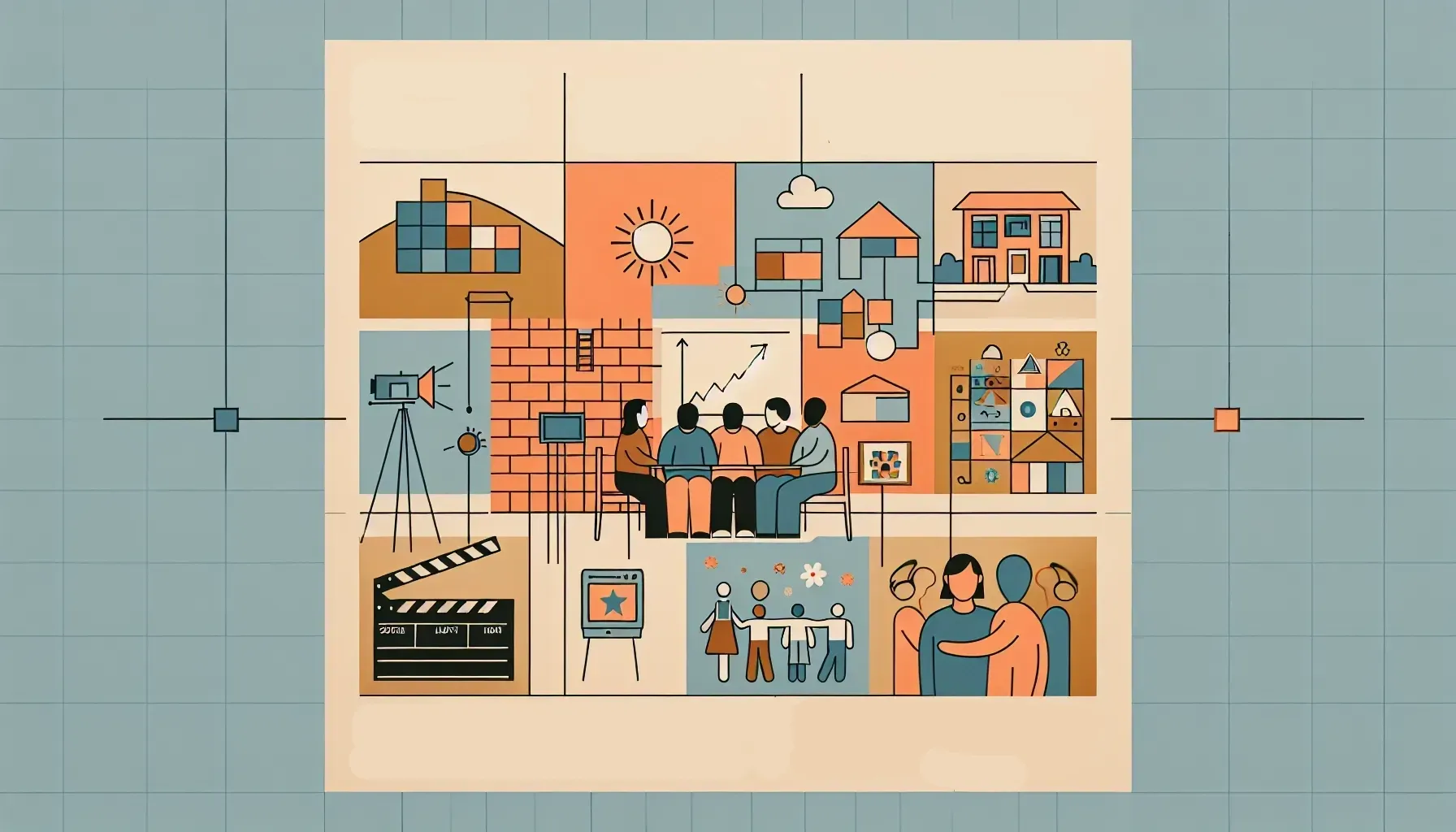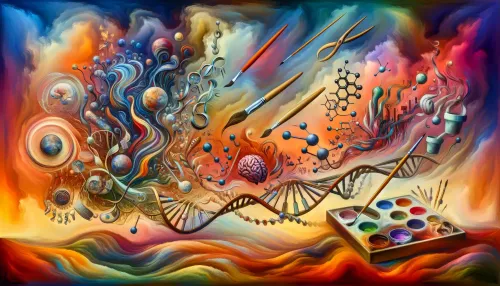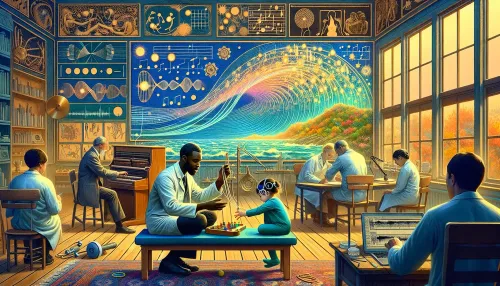Redefining Perceptions: The Influence of Autistic Personalities in Reality TV Shows and Documentaries

In recent years, the media landscape has seen a notable shift in the portrayal of autistic individuals, particularly in reality TV shows and documentaries. This shift has sparked crucial conversations about autism acceptance, representation, and advocacy. As we delve into the influence of autistic personalities on screen, it becomes evident that their diverse experiences have significant implications for autism acceptance and inclusion initiatives. In this article, we will explore the impact of these portrayals, address perspectives from autism activists, and unveil authentic stories that transcend stereotypes.
Exploring diverse experiences of autistic individuals
Reality TV shows and documentaries have become platforms for showcasing the multifaceted lives of individuals on the autism spectrum. These portrayals go beyond a singular narrative, highlighting the diverse experiences and talents of autistic personalities. From exploring their professional accomplishments to showcasing their unique perspectives on life, these representations serve as powerful tools for increasing public understanding of autism.
One notable example is the documentary series that follows the journey of individuals with autism as they navigate various aspects of their lives. Through this lens, viewers gain invaluable insights into the challenges, triumphs, and everyday experiences of autistic individuals. By shedding light on their abilities and aspirations, these documentaries play a pivotal role in fostering empathy and understanding among audiences.
Documentaries that highlight personal journeys
The portrayal of autistic children in reality TV shows also provides a platform to celebrate their strengths and showcase the remarkable talents that often go unnoticed. From exceptional artistic abilities to unparalleled skills in specific fields, these individuals demonstrate that autism does not limit their potential. As audiences witness their achievements and contributions, it reshapes perceptions and fosters a more inclusive and accepting society.
Reality TV shows celebrating autistic children's talents
The visibility of autistic personalities in media has a profound impact on shaping societal attitudes towards autism. By showcasing the distinct journeys and accomplishments of individuals on the spectrum, these portrayals contribute to broader initiatives aimed at promoting autism acceptance and inclusion. The depiction of their challenges and successes serves as a catalyst for dismantling misconceptions and fostering a culture of empathy and support.
Moreover, the representation of autistic children in reality TV shows and documentaries serves as an empowering mechanism for promoting self-advocacy within the autism community. It amplifies the voices of individuals on the spectrum, allowing them to share their stories with authenticity and resonance. This not only empowers them but also inspires others to embrace their unique identities without fear of judgment or marginalization.
Effects on Autism Acceptance and Inclusion
As society witnesses the dynamic capabilities and unique perspectives of autistic individuals through media portrayals, it cultivates an environment conducive to inclusivity and understanding. Such visibility is instrumental in dispelling stigmas associated with autism while fueling advocacy efforts aimed at creating a more equitable society for individuals with diverse abilities.
Empowering self-advocacy through media representation
While the representation of autistic personalities in media holds significant potential for advocacy and awareness, it is essential to acknowledge the perspectives of autism activists regarding potential misrepresentations. Critically examining how autistic children are portrayed on screen is paramount to ensuring that their experiences are authentically depicted without sensationalism or exploitation.
Autism activists emphasize the importance of authenticity in storytelling, calling for responsible portrayals that prioritize genuine representation over sensationalized narratives. They advocate for collaborative partnerships between media professionals and individuals on the spectrum to ensure that their voices are accurately reflected while avoiding harmful stereotypes or misinterpretations.
Perspectives from Autism Activists on Representation
Furthermore, concerns regarding exploitation or misinformation surrounding autism in reality TV shows necessitate careful consideration. Autism activists underscore the need for ethical storytelling practices that uphold the dignity and autonomy of autistic individuals, steering clear from narratives that perpetuate harmful tropes or misaligned perceptions of neurodiversity.
The importance of authenticity in storytelling
Amidst discussions surrounding the influence of autistic personalities in reality TV shows and documentaries, it is crucial to unveil authentic stories that transcend stereotypes. These narratives delve into the intricacies of individual experiences, presenting a tapestry of emotions, ambitions, and resilience that defy narrow portrayals of autism.
Avoiding sensationalism and exploitation
By unraveling these authentic stories beyond stereotypes, media platforms have a profound opportunity to reshape public perceptions while fostering an environment where diversity is celebrated rather than marginalized. Embracing the complexities of autistic experiences enables audiences to connect with the human aspect of these narratives, fostering meaningful empathy and understanding.
As we witness a paradigm shift in media representations towards authentic storytelling, it becomes imperative to amplify voices that reflect genuine experiences within the autism community. By embracing authenticity and steering away from clichés or exaggerated narratives, media can play a pivotal role in uplifting diverse voices while breaking down barriers to inclusivity.
Unveiling Authentic Stories Beyond Stereotypes
In conclusion, the influence of autistic personalities in reality TV shows and documentaries extends far beyond mere entertainment; it catalyzes crucial conversations about acceptance, inclusivity, and authentic representation. Through responsible storytelling and genuine portrayals, media platforms hold immense potential in redefining perceptions and fostering an inclusive society where every individual's story is valued.
Frequently Asked Questions
Media portrayals of autistic individuals showcase a variety of experiences, talents, and perspectives. These representations highlight their professional accomplishments and unique life views, moving beyond stereotypes. By presenting authentic stories, these portrayals foster greater public understanding and empathy towards autism, emphasizing that autistic individuals possess diverse abilities and aspirations.
Media portrayals significantly influence societal attitudes towards autism by showcasing the journeys and successes of autistic individuals. These representations help dismantle misconceptions and promote broader initiatives for autism acceptance and inclusion. By highlighting both challenges and achievements, they encourage empathy, understanding, and support for the autism community.
Autism activists express concerns regarding potential misrepresentation in media portrayals of autistic individuals. They emphasize the need for authenticity in storytelling to avoid sensationalism or exploitation. Activists advocate for responsible portrayals that accurately reflect the experiences of autistic individuals while steering clear of harmful stereotypes or misconceptions about neurodiversity.
Authenticity in storytelling is crucial as it ensures that the experiences of autistic individuals are accurately depicted without exaggeration or distortion. This approach fosters genuine representation, empowering autistic voices and promoting self-advocacy. Authentic narratives help break down stigmas associated with autism, encouraging a more inclusive society that values diverse experiences.
Media has the power to reshape public perceptions of autism by unveiling authentic stories that transcend stereotypes. By focusing on the complexities of individual experiences, media can foster empathy and understanding among audiences. Celebrating diversity within the autism community allows for a more nuanced view that encourages acceptance and inclusivity.
Documentaries play a vital role in enhancing understanding of autism by providing insights into the daily lives of autistic individuals. They highlight personal challenges, triumphs, and unique perspectives, fostering empathy among viewers. Through these narratives, documentaries serve as powerful tools for advocacy, promoting awareness and acceptance within society.
Check Out These Related Articles

Cultivating Creativity: Leveraging Artistic Talent as a Tool for Self-Expression in Autistic Children

Miraculous Musical Journeys: Harnessing Melodic Talents for Empowerment and Connection

The Artisanal Journey: Creative Ventures Nurturing Autistic Talents
